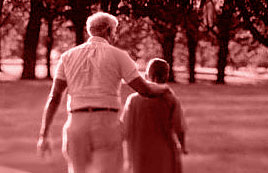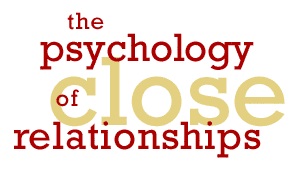  |
  |
|
|
Letting Loss Change You Going Forward: Identity Change. Without the relationship, one's self must change to adapt to a new reality. Note that two processes weave through these stages and are essential to healing: account-making and confiding. Confiding is clearly vital in post-traumatic healing. Counselors, therapists, quiet neighbors and attentive cats are all helpful to those in grief. We need to hear ourselves think out loud, we need to know we can say what we're really feeling. If you suffer a loss, identify a confidant -- and be sure that person really wants to -- and can --listen uncritically. When someone you care about is grieving, if you can do so, offer to listen and to keep confidences. Research shows that people who confide in others cope better and heal faster after trauma. Further, even those without confidants did better than otherwise if they kept a journal -- confiding, as it were, to themselves. The other theme is account-making, formulating the story of what happened, so you can begin to understand, to make sense out of the inexplicable. Account-making is personal, subjective, embellished and biased. It is not the same as seeking the truth. In our accounts, we may see ourselves as the good guys and those who broke our hearts as the bad guys. We form theories, make guesses and imagine explanations vividly. Once we come up with a story that "fits" what we recall, we can work through, and move on. Go back to the first vignette again: As much as Jennie wants to know what "really happened" with Neil, she cannot formulate her account without his "information." After months of hearing nothing to explain why Neil dumped her, Jennie comes up with this story: Neil must have been planning to break up all along, but was waiting for a covenient time such as his trip away from town. Would that match Neil's account, if he ever 'fessed up? And what if their respective accounts don't match? Suppose Neil does finally tell her what happened: One evening Jennie sees Neil at a party given by an old friend. Surprised but unafraid, she approaches him and they have an awkward but civil exchange. He's had too much to drink and can't leave yet. Seizing her opportunity, she asks him, "So, what happened, anyway? Why did you break it off? Why not just tell me. I'm don't want you back and I'm not going to make a scene. I'd just like to know." Neil hems and haws, finally muttering a lame admission. Jennie had seemed to want marriage, he felt more and more nervous. On his trip out of town, his old buddy had convinced him he was probably right and he should end it now before making another bad marriage. Jennie is both satisfied and deflated: all those months of suffering for this. Neil wasn't even right and he was so unfair. "So why not just talk to me?" she asks, "why leave me hanging like that?" He apologizes, he realized he was wrong to act that way -- but with each passing day it got harder to make contact and explain. Finally, it seemed better to leave it alone. "More convenient, you mean," Jennie observes. "C'mon, you're tired and need a designated driver. I'll take you home -- don't worry, this is goodbye. But I'd like to be able to smile if we run into each other and to know you won't try to avoid me. Let bygones be bygones." In this fairy tale (which isn't fictional, by the way, but is based on real events), Jennie finally gets her wish: Neil comes clean. She does have to corner him, but she gets Neil's explanation, his account, and then at last they part amicably and for good. But Neil's perception of their relationship doesn't match her memory. He thought she wanted marriage; she doesn't remember wanting anything of the sort. He thought it was better not to contact her; for a while, she hoped constantly he would just call and explain. Now that she has his "true" story, what happens to her account? She weaves it into her own. "I was right," she tells her friends, "Neil had been planning to break up all along. Turns out he thought I was pushing for marriage. And that friend of his just egged him on. So when he came back from that trip, he tried to lie low. I wish he'd told me but it's water over the dam. At least he finally came clean and we can be civil, quit avoiding each other from now on." |